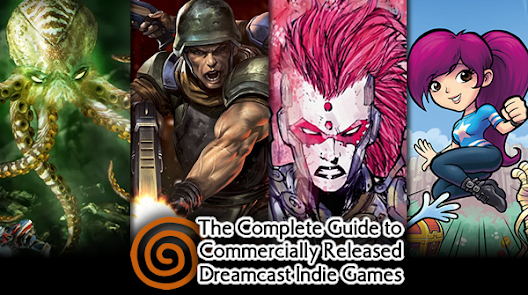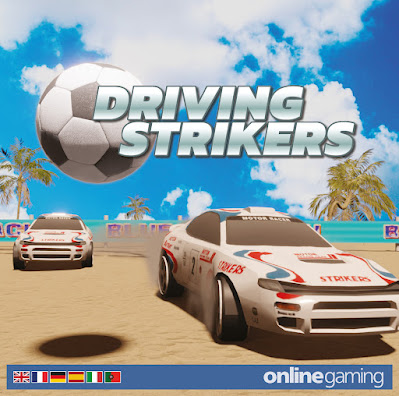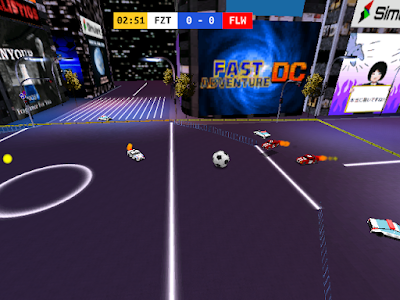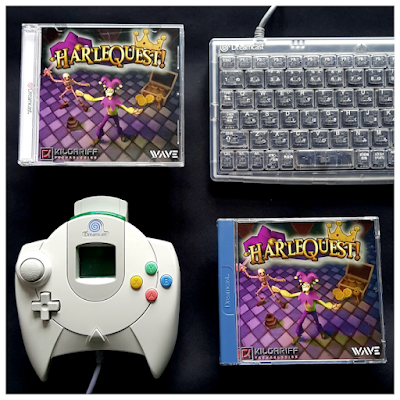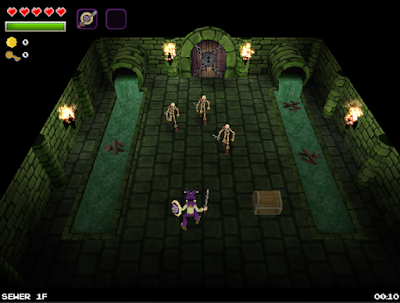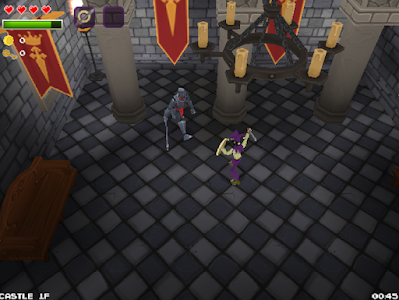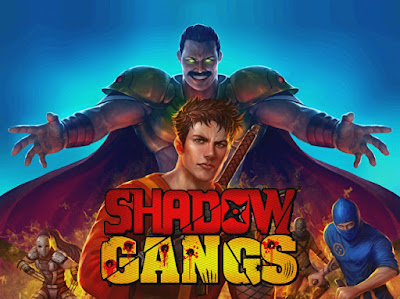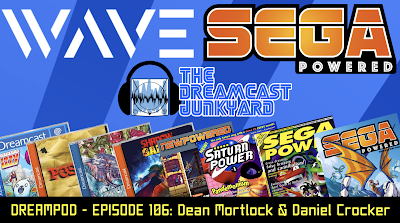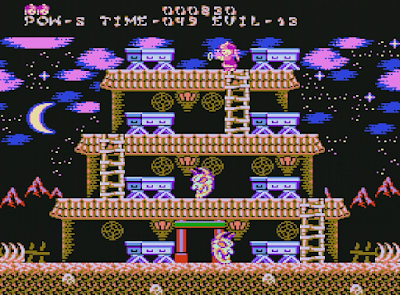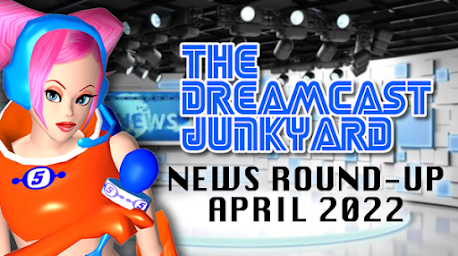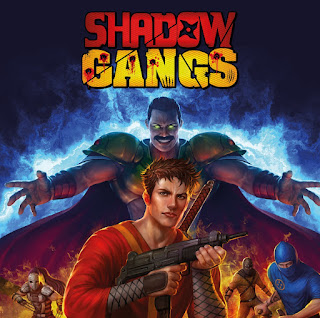A lot has happened recently. Twitter is considering adding an edit button, NFTs seem to have retreated back into obscurity (phew), Will Smith slapped Chris Rock, and of course, the Dreamcast scene continues to keep our beloved (supposedly dead) console relevant. As the team are busy counting the votes for the The Dreamcast Junkyard Top 200 Dreamcast Games 2022, I thought I'd give y'all a Dreamcast news round up. Hold on to your VMUs, because I'm rounding up a lot of things today.
A tidal WAVE of Dreamcast indie activity
You should all know WAVE Game Studios by now, but if you don't, check out our interview with them to get the scoop on why they're the one to watch in the Dreamcast indie release scene! Then, if reading all about all their previous endeavours wasn't evidence enough, here's all the stuff they've just done recently:
- The first Dreamcast demo disc in 21 Years!
This one's really damn cool. If you're not in the know, SEGA Powered is a cracking Sega-focused magazine that launched earlier this year off the back of a successful Kickstarter campaign. Helmed by Sega gaming mag veterans, every issue that has been released so far have been widely praised by Sega fans everywhere. We had a look at the first issue on the blog a while back, so check that out if you want to learn more.

So we've got a cool new Sega magazine to sink our teeth into, but you know something about the old gaming magazines that we really wish would come back? Cover discs filled to the brim with exciting demos! Well, seeing as the Dreamcast is getting so many new games released for it these days (making it a modern gen console - will box anyone who disagrees), it's only right that an issue of this modern Sega mag would eventually come bundled with some kind of free demo disc featuring tasters of the latest and greatest Dreamcast indie games! The disc will exclusively feature demos of WAVE titles, and will be released with issue 5 of SEGA Powered, due June 2022. It will be be the first Dreamcast demo disc to be released in 21 years! We recommend following the magazine's Twitter account to learn more details as the release gets closer.
- Shadow Gangs is getting a WAVE release!
After a somewhat rocky Kickstarter campaign (that involved the original campaign being cancelled to make way for another with a more reasonable goal), JKM Corp's Shadow Gangs was eventually fully funded. As the game was known to be pretty much near completion, many scratched their heads and asked why Shadow Gangs couldn't just work out a deal with a distributor like WAVE or JoshProd, and skip the Kickstarter all together, but the developers stuck by their campaign.
Well, looks like WAVE are now going to be distributing the game anyway, as announced in a Twitter post posted by WAVE on the 4th of April. This means WAVE will be manufacturing the Kickstarter copies and any future copies that will be sold through WAVE's web store. They've also confirmed that backers will be getting some "super cool extras" with their games, so that's something to look forward to!
- Postal will have local co-op!
WAVE are still on track to release the officially-sanctioned Dreamcast port of Postal on the 2nd of June, and you can still pre-order a copy on their web store. Dan Redfield, the gent responsible for porting the game, revealed at the end of March that he's successfully implemented a 4-player co-op mode into the game's campaign. It's only right that a port of Postal to a console known for its excellent party games would have such a mode!
Translations
Other than the bustling indie scene, another reason for the second wind the Dreamcast is experiencing (at least for us English speakers) are the many translations of Japanese games that have previously been inaccessible to us due to the language barrier. Here's some more!
- Former Managing Director Yukawa's Treasure Hunt has been translated into English!
The Dreamcast game we never knew needed an English translation has finally been translated, thanks to the talents of
SnowyAria (who previously translated
Seven Mansions: Ghastly Smile). This simple promotional game has you play as former Sega of Japan head Yukawa Hidekazu as he digs up various pieces of Dreamcast-related memorabilia, with the idea being that for a month in 1999, you could submit your victory online to be entered into a raffle to win said memorabilia in real life. Obviously, you can no longer win any prizes, but you can at least experience this odd morsel of Dreamcast history in English now. Go
here to get the translation patch, and for some further reading, check out Tom's article on the game
here.
 |
| Me after playing Spirit of Speed 1937 for five minutes |
- New gameplay footage of the Nakoruru translation!
Derek Pascarella's project to translate the visual novel Nakoruru: The Gift She Gave Me into English started in August of last year. I am working as an editor on the project and all I'll say is that it has been a blast to work on so far! Anyway, Derek has put together a great preview video showcasing a test-build of the translation, which you can find here. You can find out more about everything Derek does by visiting DreamcastForever.com. Watch this space!
The odd stuff!
This is the part of our news round-up where we take a look at some things that verge on the side of kooky or obscure. These are the Dreamcast equivalent of those lighthearted cutaway reports on the real news that show you a Pug that can do a pop shove-it on a skateboard or something. Anyhow...
- The Mega Duck is now playable on the Dreamcast..?
Mega Duck... that's like Rubberduckzilla from that old Oasis advert, right? Nope. It was actually a Game Boy rip off from Hong Kong. It was also released in South America with the equally ludicrous name "Cougar Boy"... You can't make this shit up.
Anyway, the Mega Duck had a not-so-mega library of games (quantity-wise) and the majority of them were developed by Taiwanese company Sachen. When the Mega Duck could no longer be kept afloat (geddit?), Sachen ported a load of its Mega Duck games onto the Game Boy in the form of unlicensed multicarts, presumably to recoup some of their losses. Well, veteran Dreamcast homebrew coder Ian Michael has stripped each individual game from their respective multicarts and packed them all together as a bootable ISO (you need to use DreamShell to boot it) that uses a Game Boy emulator Gnuboy to emulate them. The package contains a total of 21 playable titles. Sadly, Snake Roy is not one of them... Maybe one day.
 |
| That is game art only a Mother could love... |
Go to this Dreamcast-Talk forum thread for more information and a link to download the Mega Duck ISO. Edit: since I published this article, Derek Pascarella has converted the ISO into a .cdi image, meaning it can now be booted up on ODEs like GDEMU and MODE. The link for this is also in the Dreamcast-Talk forum thread. Thanks Derek!
Now, go fourth and play some Mega Duck on your Dreamcast! Now there's a sentence I never thought I'd say...
- You can now cast dreams from the comfort of your very own Dreamcast bed...
Yeah, some company called "MoonLambo" is selling Dreamcast-themed bedding. The company predominately sells clothing featuring a lot of cyberpunk and vaporwave designs, but it looks like they've also branched out into selling home goods. Their trademark infringement-avoiding "Dreams Last" range includes a console duvet cover, VMU pillow cases, and a controller cushion. It's all a bit pricey, with the duvet cover ranging from £73 all the way up to £113 depending on the size you want. I also have no idea if it would even be good quality, as the site looks worryingly similar to one of those dropshipping clothing stores you'd get advertised to you through Instagram-ads, who steal people's designs and print them on crap shirts that shrink after one wash. But if you're a bachelor with a lot of disposable income who thinks a Dreamcast bed would look cool in your pad, then purchase at your own risk.

That's all for now, folks! Which of these news items excites you the most? It's the Mega Duck on Dreamcast, isn't it? Fair enough. Anyway, let us know your second favourite in the comments below!








